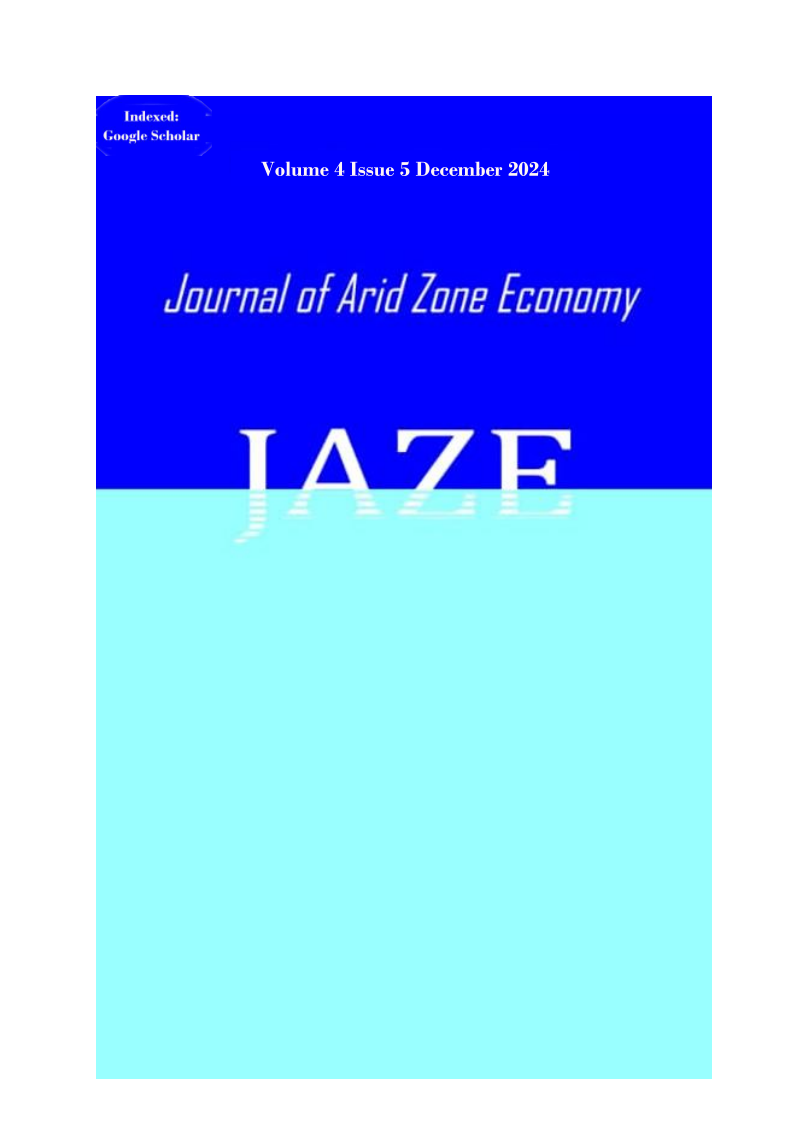The Impact of Inflation and Household Consumption in Nigeria
Keywords:
Inflation, Household Consumption, interest rate, OLSAbstract
This research examines the relationship between Inflation and
Household Consumption in Nigeria Using secondary data for the
period 1990 - 2022. Estimation technique employed is the Auto
Regressive Distributed Lag (ARDL) model. The results indicated a
negative relationship between Inflation and Household Consumption in
Nigeria. Inflation rate (INFL) has an estimated coefficient of-0.511835
with a P-Value of 0.0158 meaning that a unit increase in inflation rate
will decrease Household Consumption growth rate by 0.51 unit and it
is statistically significant at 5%., indicating that higher Inflation rates
tend to reduce household consumption. The study recommends that policy
makers should implement price control strategies to curtail inflation,
government could focus on stabilizing prices through supply-side
measures, such as increasing production and reducing supply chain
bottlenecks. Interest rate should be lowered and policies be put in place
for borrowing this will help stimulate household consumption.

Downloads
Published
Issue
Section
License
Copyright (c) 2024 Journal of Arid Zone Economy

This work is licensed under a Creative Commons Attribution 4.0 International License.

